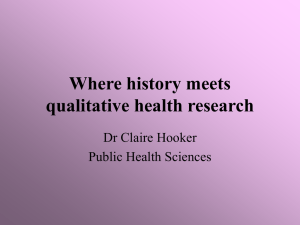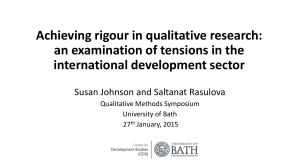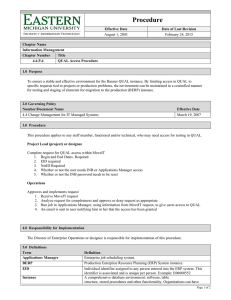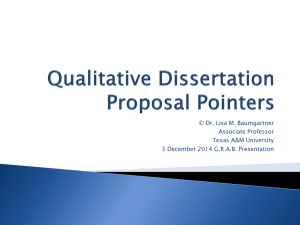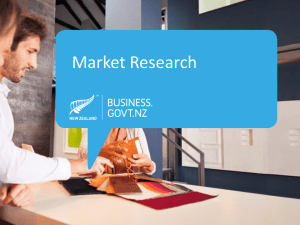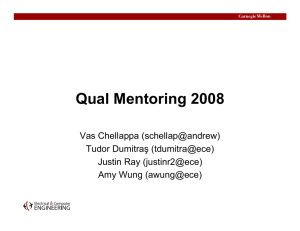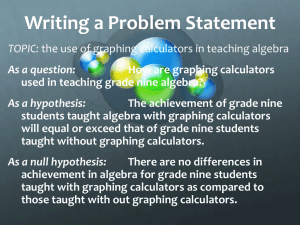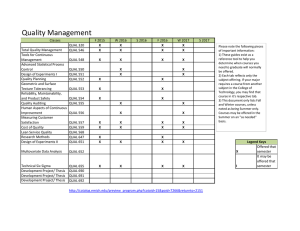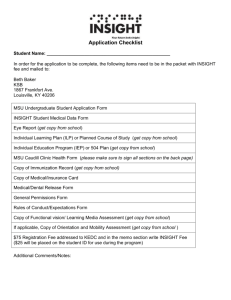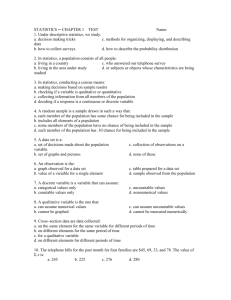Session title (Should intrigue & inform):
advertisement
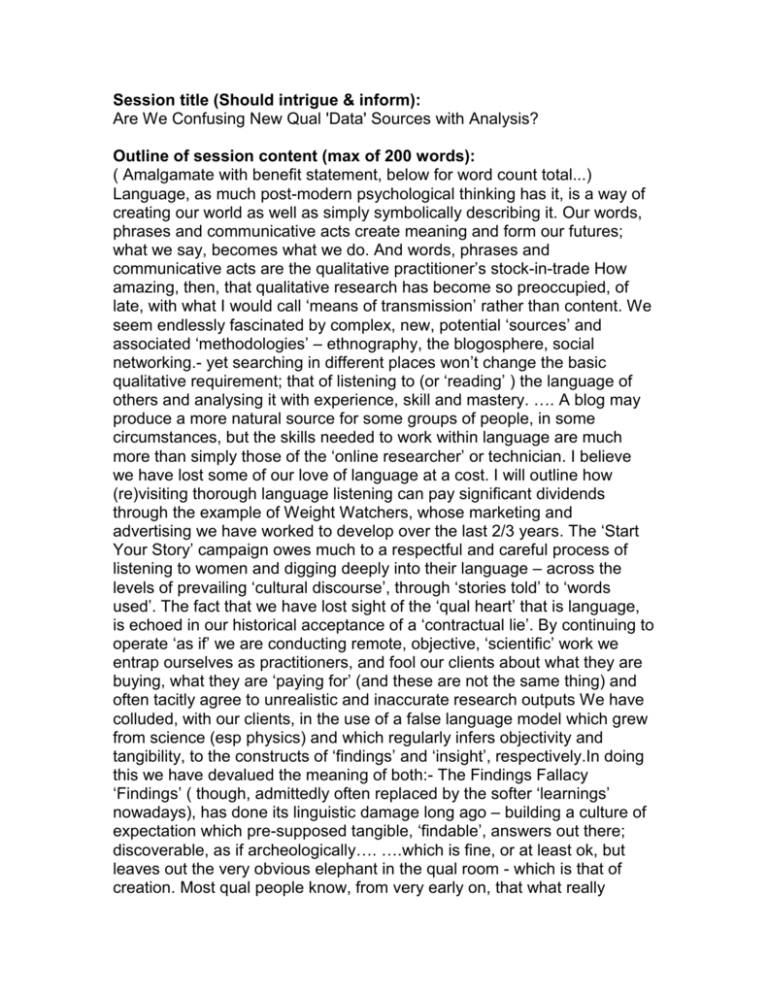
Session title (Should intrigue & inform): Are We Confusing New Qual 'Data' Sources with Analysis? Outline of session content (max of 200 words): ( Amalgamate with benefit statement, below for word count total...) Language, as much post-modern psychological thinking has it, is a way of creating our world as well as simply symbolically describing it. Our words, phrases and communicative acts create meaning and form our futures; what we say, becomes what we do. And words, phrases and communicative acts are the qualitative practitioner’s stock-in-trade How amazing, then, that qualitative research has become so preoccupied, of late, with what I would call ‘means of transmission’ rather than content. We seem endlessly fascinated by complex, new, potential ‘sources’ and associated ‘methodologies’ – ethnography, the blogosphere, social networking.- yet searching in different places won’t change the basic qualitative requirement; that of listening to (or ‘reading’ ) the language of others and analysing it with experience, skill and mastery. …. A blog may produce a more natural source for some groups of people, in some circumstances, but the skills needed to work within language are much more than simply those of the ‘online researcher’ or technician. I believe we have lost some of our love of language at a cost. I will outline how (re)visiting thorough language listening can pay significant dividends through the example of Weight Watchers, whose marketing and advertising we have worked to develop over the last 2/3 years. The ‘Start Your Story’ campaign owes much to a respectful and careful process of listening to women and digging deeply into their language – across the levels of prevailing ‘cultural discourse’, through ‘stories told’ to ‘words used’. The fact that we have lost sight of the ‘qual heart’ that is language, is echoed in our historical acceptance of a ‘contractual lie’. By continuing to operate ‘as if’ we are conducting remote, objective, ‘scientific’ work we entrap ourselves as practitioners, and fool our clients about what they are buying, what they are ‘paying for’ (and these are not the same thing) and often tacitly agree to unrealistic and inaccurate research outputs We have colluded, with our clients, in the use of a false language model which grew from science (esp physics) and which regularly infers objectivity and tangibility, to the constructs of ‘findings’ and ‘insight’, respectively.In doing this we have devalued the meaning of both:- The Findings Fallacy ‘Findings’ ( though, admittedly often replaced by the softer ‘learnings’ nowadays), has done its linguistic damage long ago – building a culture of expectation which pre-supposed tangible, ‘findable’, answers out there; discoverable, as if archeologically…. ….which is fine, or at least ok, but leaves out the very obvious elephant in the qual room - which is that of creation. Most qual people know, from very early on, that what really happens in qual work is stuff gets made up and that ideas get created (sometimes, woven in, along the way things are also ‘found’ -) and the way this happens is all about language… The Inside on Insight Like ‘love’, insight has become a kind of research industry ‘holdall’. And because we are pretending that we ‘find’ things, insight has to be rationalised as a form of ‘aha moment’ discovery; the one tiny ‘finding’ that becomes the key to all else. Insight has been ‘shrunk to fit’ an impoverished (science-based) language culture Based on ‘meaning as use’ (as Wittgenstein suggested) insight is contextual and ‘slippery’ rather than finite or tangible, .and, perhaps - as it is for Weight Watchers - created through playing with language and accepting healthily blurred barriers between ‘consumers’, researchers and clients, all of whom have contributed to a shared language.. Benefit statement (Please summarize what attendees can expect to gain from your session in 200 words or less): The paper explores how research practitioners and research-buying clients can gain consideraby more from their qualitative work if the cultural stories, language and word constructions within our 'data' are explored and analysed more thoroughly. These language listening - or 'reading' - skills and processes have been sidelined in recent years in favour of fashionable, but often more superficial 'findings' revealed in visual/'ethnographic'/internet-sourced records. This paper is based on practical case examples (notably Weight Watchers) and simply makes the case for a timely reappraisal of what was always considered the heart of qual - language analysis Please provide a brief biographical sketch for all speakers, including qualitative research and speaking experience (max of 200 words): Rosie Campbell Director and Co-Founder of Campbell Keegan Ltd, a leading qual company over the last 25 years, now operating as a Consultant Partnership We have conducted over 1500 qualitative projects for a vast range of different clients and in a plethora of markets. Most recently about 50% of our/my work is for Government Departments (including Inland Revenue, Health, Transport Culture, Education Cabinet Office Treasury and Food Standards in the last 3 years) Commercial clients are still important, however and I have been closely involved in adertising, strategy and product development for, amongst others, Weight Watchers, Bold, Pantene Yoplait in the last year. I have given several many papers at MRS, SRA, AQR, WARC and Admap conferences as well as Radio and TV appearances in the role of research/market expert, especially in child and teenage markets. I have a business psychology MSc and am the recently elected Chair of AQR. Full name: Rosie Campbell Email address: Rosie@campbellkeegan.com Mailing address: 27 Ardbeg Road, London, SE249JL, England Phone (including area/country code): 020 7274 9520 Fax (including area/country code): 020 72748701
